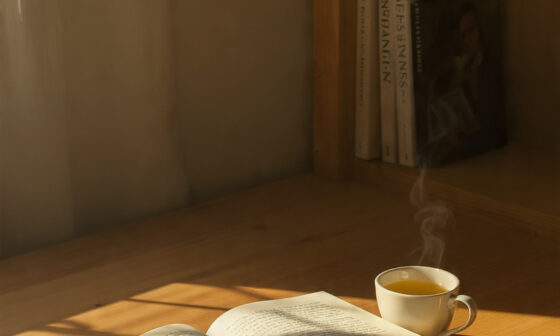In today’s world where everything comes faster, flashier, and fancier. The meals are rich, the screens are bright, and the options are endless. But for all the luxury and variety we surround ourselves with, it can still very very much feel like satisfaction slips through our fingers. We keep adding, upgrading, and accumulating, hoping for fullness, while forgetting that true satisfaction has never been about excess; it has always been about appreciation.
The ancient Spartans knew this well; their way of life was marked by simplicity, discipline, and restraint. Their meals were famously plain, often a dark, unappealing broth called “black soup.” To outsiders, it was almost uneatable, but to the Spartans, who trained hard and lived simply, it was deeply satisfying. And why is that? Because hunger was their seasoning, and because gratitude was their taste.
And that is likely one of the lessons we have forgotten in today’s modern life.
The Sweetness of Simplicity
The Stoics often reminded themselves that nature provides enough for our needs, but not for our greed. We crave comfort, but comfort rarely strengthens us. We seek variety, but variety easily numbs us, and when life becomes too easy, our appreciation is sometimes to likely fade.
Simple pleasures; the morning sun, the smell of rain, laughter with someone you love remind us that joy does not require a dramatic entrance or display. It just requires presence; it requires noticing what is already around us.

Marcus Aurelius wrote: “Very little is needed to make a happy life; it is all within yourself, in your way of thinking.” The simplicity that nourishes us most is not external; it is internal; it is how we look at life, how we savor the ordinary moments that others rush past.
Hunger Is the Best Seasoning
There is wisdom in the Spartan approach: Pleasure is deeper when it is earned. Food tastes better when you have worked for it. Rest feels sweeter after effort, and love feels richer when it is chosen daily, not taken for granted.
We might not live like the Spartans, but the same truth applies, when we deny ourselves a little, when we fast from constant indulgence, we rediscover the flavor of life. The Stoics practiced voluntary discomfort not to punish themselves, but to appreciate comfort when it returned. It was a spiritual training ground, a way to stay grateful, humble, and grounded.
So maybe what we need is not more, but less and what I mean is: Less excess, more gratitude! Less noise, more awareness! Less comfort, more meaning!
The Christian Call to Contentment
The Bible says this same truth. Paul wrote in Philippians 4:12, “I know what it is to be in need, and I know what it is to have plenty. I have learned the secret of being content in any and every situation.”
That “secret” is not wealth or luxury; it is gratitude. It is knowing that joy does not depend on what is on your plate, but what is in your heart.
Jesus Himself lived simply, not because He could not have lived richly, but because He chose purpose over possessions. His satisfaction came from doing the will of the Father – John 4:34, not from indulgence or ease. He modeled the beauty of a life uncluttered by greed and grounded in meaning.
Modern comfort can be deceptive; it convinces us that abundance equals happiness, but abundance when abused has a way it dulls the soul. When we have everything, we lose the joy of anticipation, the satisfaction of earning, the gratitude that comes from receiving.
Simple pleasures are not “less than;” they are the core of joy; the moments that anchor us when everything else feels unstable. They are the gentle reminders that beauty is not always loud; sometimes it is a quiet cup of tea, a good book, or a shared silence with someone who understands and loves you.
Gratitude Turns Simplicity into Abundance
Gratitude transforms ordinary moments into sacred experiences; it is the bridge between what we have and what we think we need. Because when we slow down to truly appreciate something that seems small like a smile, a quiet evening, a meal made with love, we realize that simplicity is not lack; it is clarity and it can be BIG.
Seneca once said: “It is not the man who has too little, but the man who craves more, that is poor.” And Jesus said in Luke 12:15: “Life does not consist in an abundance of possessions.”
Both truths point in the same direction: Richness is a matter of perspective, not possession.
Read Also: Simple Pleasures To Appreciate In Life
Read Also: Less is Luxury: Living Below Your Means is The New Rich
Read Also: Virtue’s Opportunity: How You Can Use Challenges to Build Your Strength
Conclusion
There is nothing better than a simple pleasure, not because it is grand or luxurious, but because it reminds us that joy was never missing; it was just buried under our noise. The Stoics, the Spartans, and the Scriptures all say the same message: Learn to want less, and you will realize you already have more.
So enjoy the meal, however plain it may be! Feel the breeze! Smile at the sunrise! Simplicity is not the absence of abundance; it is the discovery of enough!





